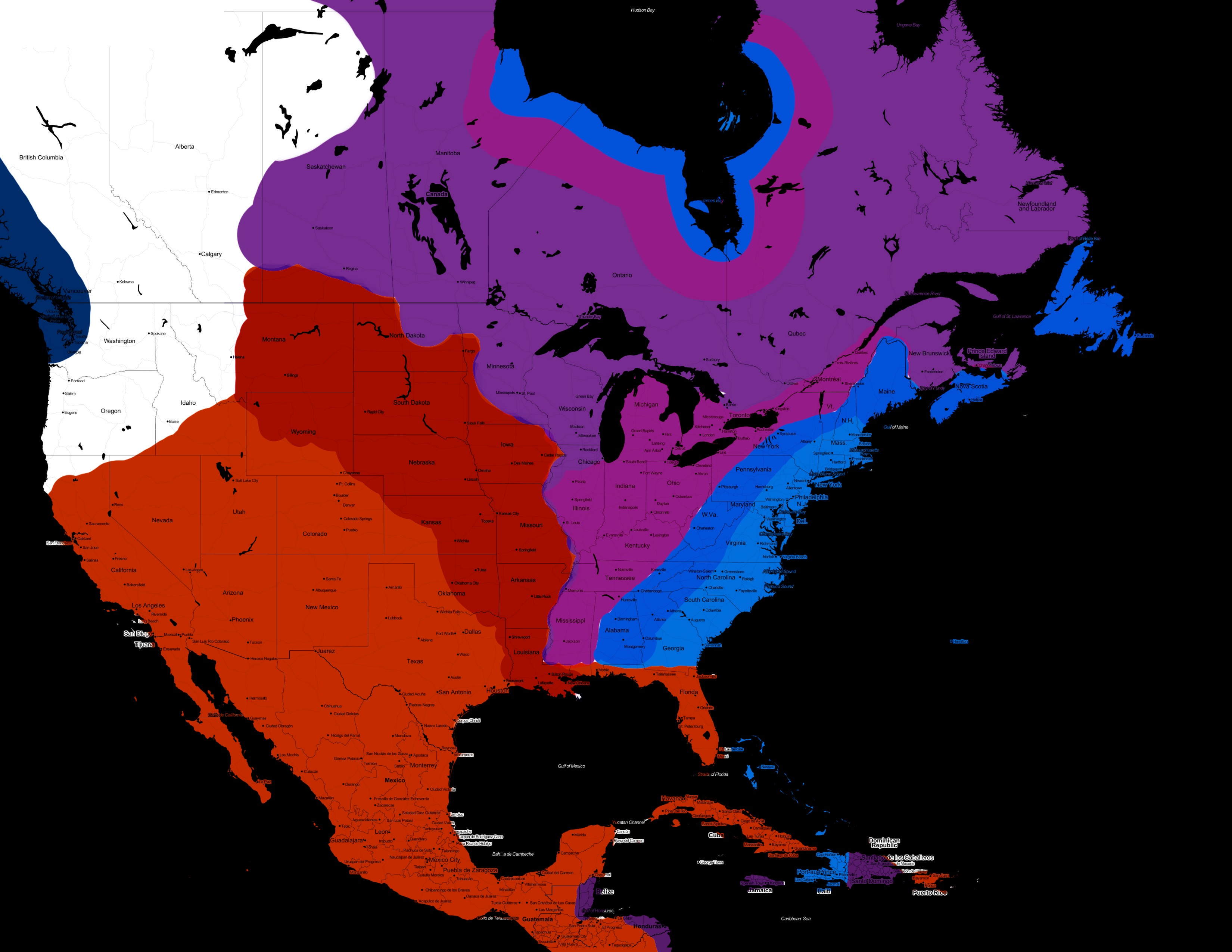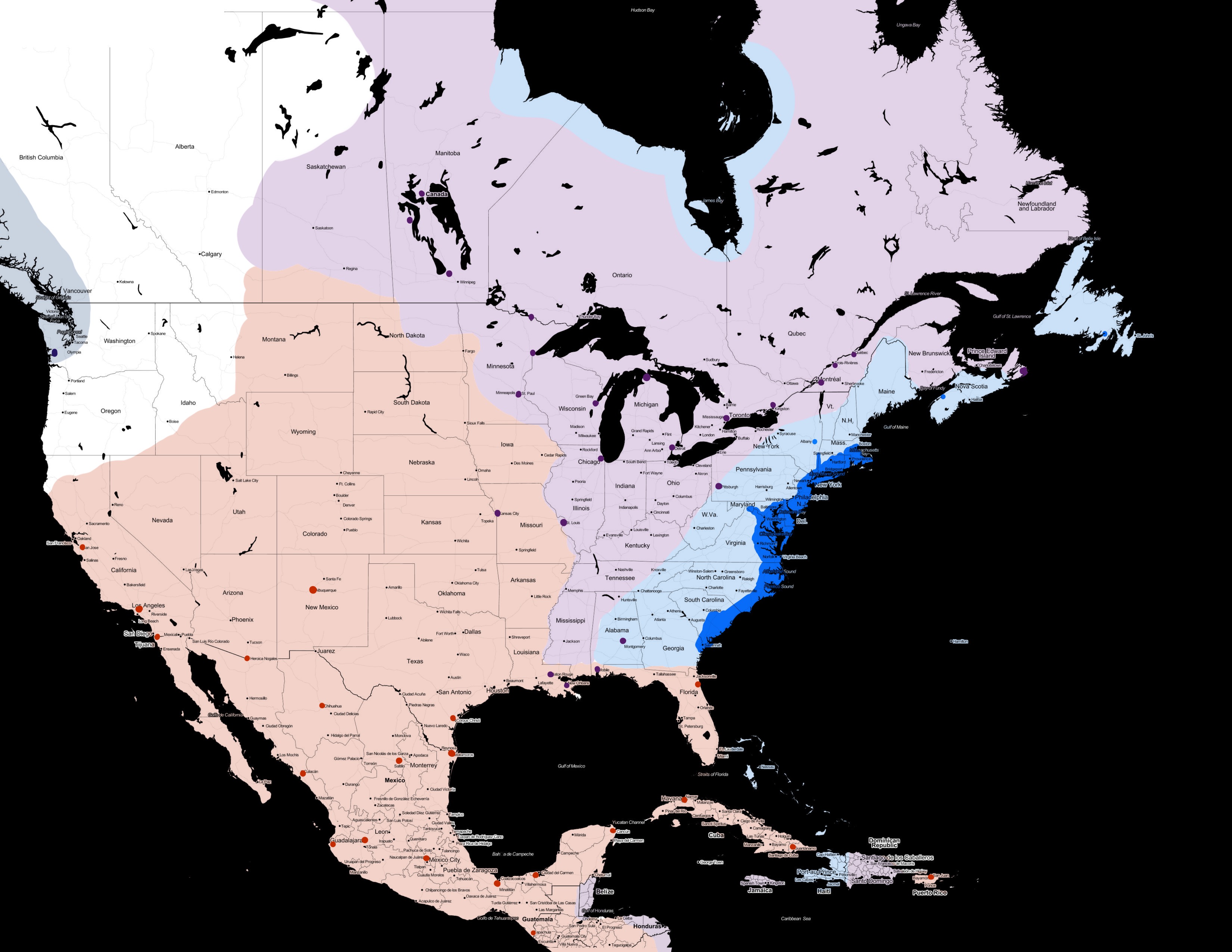History of American Indians and the United States
Sixty Years' War & Traditionalist Revivals
Dr. Kane
mkane2@albany.edu Humanities 109 | MWF 9:20 - 10:15 AM
Office Hrs: M 10:20 - 11:20 & F 1:30 - 3:30
Social Science 60S
Monday, October 23
coming up
- Objects paper Nov 6
- email your images by Nov 5 - mini presentations in class
- stay caught up with Kenny!
today's class
- French and Indian War
- major players
- 1779 Sullivan Campaign
- traditionalist revivals
18th century European claims

actual control

French and Indian War
French and Indian War
- Iroquois as English ally or barrier?
- German settlers as English ally or barrier?
- English fear of French Catholicism
- Proclamation of 1763
major players
- Molly Brant: noted diplomat and war leader
- 1759 married Sir William Johnson, British Superintendant of Indian Affairs
- Joseph Brant: educated at Dartmouth, noted war leader
- Molly Brant's post-Revolution influence on British
- Josef Clemens & Ury Klock: who represents British interests?
1779 Sullivan campaign
- Iroquois neutrality in American Revolution
- Oneida allied with Americans but not against other Iroquois
- shift in American attitudes towards Native women
- early: take hostages and material objects
- late: destroy land & murder acceptable
tradtionalist revivals
- 1762 - Neolin & Pontiac
- 1799 - Handsome Lake & Cornplanter
- 1805 - Tenskatawa & Tecumseh
- all born of a set of twins or triplets
1762-1764 - Neolin & Pontiac
- British belief in declining Indian ally importance
- fasting induced dreams
- rejection of alcohol and cloth, polygamy, focus on monogamy or celibacy
- pan-Indian military resistance, anti-Iroquois
- extermination of European and African settlement
- questionably Christian - shift from dualistic to monotheistic
1799 - Handsome Lake & Cornplanter
- precipitated by punitive US treaties - 1786 Ft Stanwix
- Handsome Lake's liver failure
- rejection of alcohol, internal argument, wife beating, witchcraft, promiscuity
- emphasis on peaceful coexistence
- shift in women's roles and reframing of dualism
1805-1812 - Tenskatawa & Tecumseh
- precipitated by increased US settlement & Northwest Ordinance (1787)
- Tenskatawa's liver failure
- rejection of alcohol, cloth, firearms, witchcraft, Christianity
- extermination of European but not African settlers
- emphatic dualism w/ devil-influenced Americans
- explicitly Pan-Indian politically and religiously
what do they have in common
- triggered by shifting diplomatic landscape
- male savior figure + dualist elements
- rejection of some European goods/influences
- pan-Indian goals
lessons learned
- importance of Indian diplomats (incl women) in Indian diplomacy
- importance of professional Euro diplomats
- need to conduct diplomacy on Indian terms